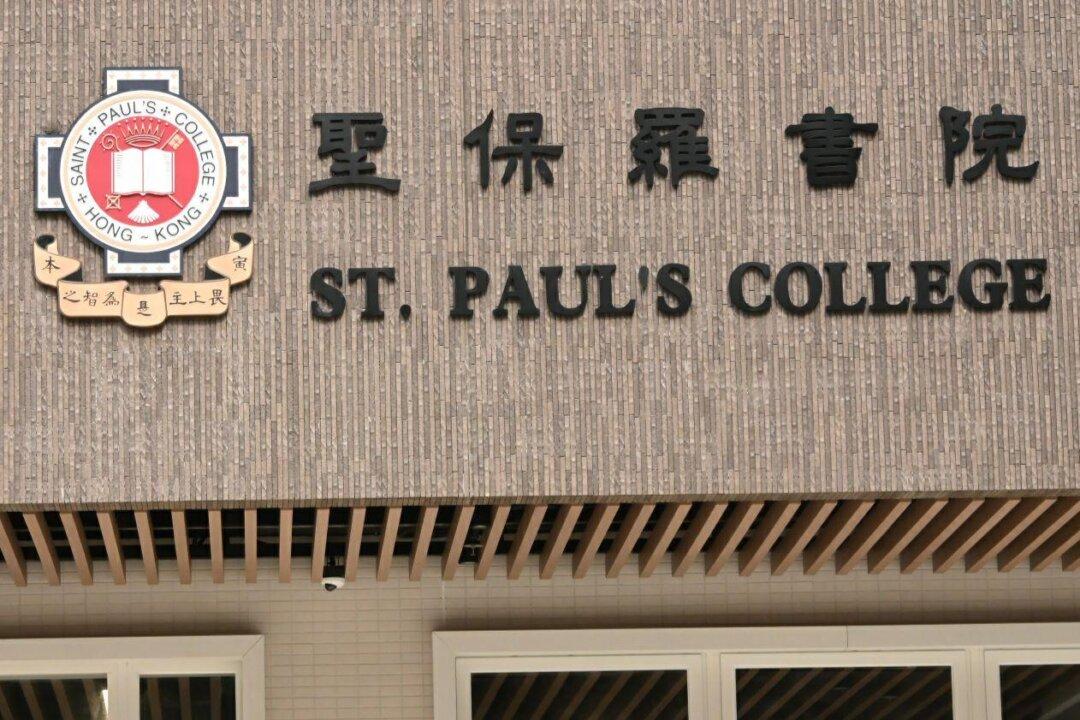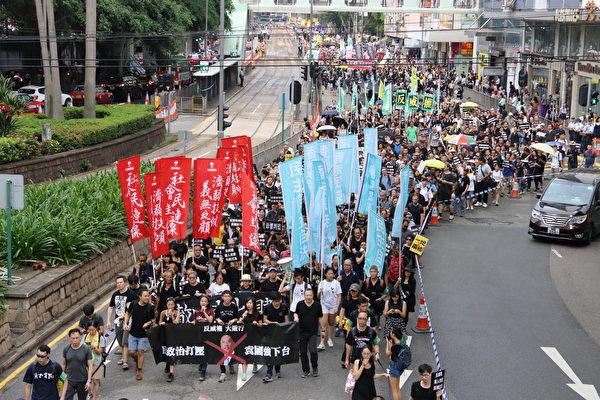Supporters of the Chinese Communist Party (CCP) have been constantly pressuring Hong Kong judges to side with mainland China, making 2013 a trying year for the independence of the Hong Kong judiciary.
Some CCP supporters have said that they will request the removal of judges who they think are politically biased, Secretary for Justice Rimsky Yuen Kwok-keung said, according to the South China Morning Post.
In their speeches at the opening ceremony of the 2014 legal year, Chief Justice Geoffrey Ma Tao-Li and Hong Kong Bar Association chairman Paul Shieh Wing-Tai spoke of their determination to safeguard judicial independence against such attacks.
“The independence of Hong Kong’s judges, the respect for the integrity of the law and the constitutional duty on the judiciary are key aspects of Hong Kong’s legal system,” Ma said in his speech on Jan. 13.
“It is worth repeating the salient features of this integrity: a truly independent judiciary, judges who look no further than the proper application of the law both in letter and in spirit, and the importance of ensuring transparency in all that the courts do in order to demonstrate the integrity of the law,” said Ma.
“The confidence that there exists the Rule of Law in a community does not come about merely by what is said by people (including the Chief Justice) or what is said by institutions (including the Government),” Ma added. “Rather, the existence of the Rule of Law ought to be assessed by a critical examination of objective features that are relevant to be considered.”
The separation of powers among the legislature, the executive and the judiciary is protected under Hong Kong Basic Law. However, People’s Republic of China Liaison Officer Hao Tiechuan has repeatedly reiterated China’s official view that Hong Kong is led by the executive, and the executive is not limited by the separation of powers.
Ma refuted this by pointing out that the Basic Law clearly sets out the principle of the separation of powers, and it states in quite specific terms the different roles of the three institutions.
“On the subject of the judiciary, if you look at Article 2, Article 19, Article 85, there are a lot – a total of 159. If you hand me a copy of the Basic Law, there are even more articles about this, and if you call me tomorrow, I can answer you directly,” said Ma.
Paul Shieh Wing-Tai, chairman of the Hong Kong Bar Association, pointed out in his speech that the Basic Law leaves room for different options, and the authorities cannot just fix it with their own word as the final say.
If the authorities have reservations about an option for political reasons even though it conforms to the Basic Law, the government should stand up to these political grounds and allow open discussion and debate among the public, Sheih said.
Sheih said he did not want political objections to be presented as legal objections, which would shut the public out from debating the political merits and demerits of legally permissible proposals on constitutional development that are in line with the Basic Law.
The flourishing of the rule of law depends on the moral fabric of a society and the civic qualities of its citizens, Shieh added. Without this “collective conscience,” he said, it would be rather pointless for a society to have the best-drafted laws, best-equipped police and most high-tech courts.
Shieh quoted Guan Zhong, prime minister of the ancient Kingdom of Qi, who said three thousand years ago: “When their warehouses are well stocked, people will develop their manners and a sense of justice and righteousness; when people are well fed and well clad, they will learn about honor and disgrace.”
In other words, the moral fabric of a society is what ancient wisdom called a sense of justice, righteousness and honor. If it crumbles, it may take years to rebuild.
Former Chief Justice Andrew Li recently reminded the people of Hong Kong that the price of liberty is eternal vigilance, judges cannot protect judicial independence by themselves, and the rule of law must be respected and supported by an independent media and the entire society.
Translated by Y.K. Lu. Written in English by Sally Appert.
Legal Elite Stand Firm for Hong Kong’s Judicial Independence
Supporters of the Chinese Communist Party have been constantly pressuring Hong Kong judges to side with mainland China, making 2013 a trying year for the independence of the Hong Kong judiciary.

The ceremonial opening of the legal year 2014 on Jan. 13. Epoch Times
|Updated:



